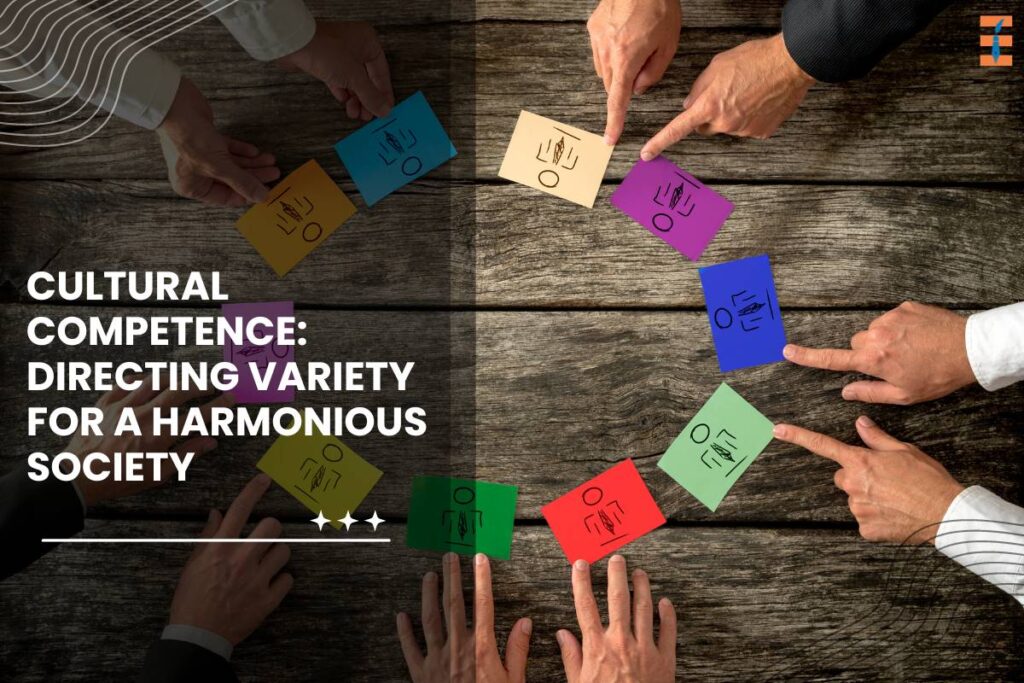In today’s interconnected world, the significance of cultural competence cannot be overstated. As societies become more diverse and global interactions increase, understanding, appreciating, and respecting different cultural backgrounds is essential for fostering harmony and cooperation. Cultural competence encompasses a range of skills, attitudes, and behaviors that enable individuals to interact effectively with people from diverse cultures. Whether in education, healthcare, business, or social interactions, the ability to navigate cultural differences with sensitivity and respect is crucial for building inclusive and thriving communities.
Understanding Cultural Competence
It goes beyond mere tolerance of differences; it involves actively seeking to understand and learn from diverse perspectives. It encompasses awareness of one’s own cultural beliefs and biases while remaining open to learning about and valuing other cultures. This includes developing communication skills that are sensitive to cultural nuances, recognizing and challenging stereotypes, and adapting practices to be inclusive and respectful of diverse cultural norms.
The Importance of Cultural Competence in Education
In the field of education, cultural competence plays a pivotal role in creating inclusive learning environments where all students feel valued and respected. Teachers who possess these skills can better understand their students’ backgrounds, tailor instruction to meet diverse learning needs, and foster positive relationships among students from different cultural backgrounds. This not only enhances academic achievement but also promotes mutual respect and appreciation among students, preparing them to thrive in a multicultural world.
Cultural Competence in Healthcare Delivery

In healthcare, cultural competence is essential for providing quality and equitable care to patients from diverse backgrounds. Healthcare professionals who are culturally competent can communicate effectively with patients of varying cultural backgrounds, understand their beliefs about health and illness, and incorporate cultural preferences into treatment plans. This leads to better health outcomes, increased patient satisfaction, and reduced disparities in healthcare access and outcomes among different cultural groups.
Building Cultural Competencies in Business and Organizations
In the business world, it is increasingly recognized as a critical skill for success in global markets and diverse workplaces. Companies that prioritize cultural competence among their employees foster innovation, creativity, and collaboration across cultural boundaries. This in business involves understanding cultural differences in communication styles, decision-making processes, and business etiquette, as well as respecting diverse perspectives in team dynamics and leadership practices.
Developing Cultural Competence Skills

Developing this is an ongoing process that requires self-awareness, education, and practice. Here are some key strategies for enhancing cultural competence in various contexts:
1. Self-Reflection
Take time to reflect on your own cultural beliefs, biases, and experiences. Consider how these factors influence your interactions with people from different cultural backgrounds.
2. Education and Training
Seek out opportunities for learning about different cultures, histories, and traditions. Attend workshops, courses, or cultural events to broaden your understanding and awareness.
3. Active Listening
Practice active listening skills when engaging with individuals from diverse backgrounds. Pay attention to verbal and nonverbal cues, ask clarifying questions, and demonstrate empathy and respect.
4. Cultural Humility
Adopt a mindset of cultural humility, acknowledging that you may not know everything about a culture and remaining open to learning from others’ perspectives and experiences.
5. Cross-Cultural Communication
Develop communication skills that are sensitive to cultural differences in verbal and nonverbal cues, language use, and interpersonal interactions. Avoid making assumptions and seek clarification when needed.
6. Respect and Empathy
Show respect for diverse cultural beliefs, practices, and customs. Demonstrate empathy by trying to understand the experiences and perspectives of others without judgment.
7. Collaboration and Partnership
Collaborate with individuals and organizations from different cultural backgrounds to foster mutual understanding, shared goals, and inclusive practices.
Case Studies in Cultural Competence Success

1. Educational Institutions
Schools and universities that prioritize cultural competence among faculty, staff, and students experience higher levels of academic achievement, student engagement, and positive school climate.
2. Healthcare Organizations
Hospitals and clinics that implement this training for healthcare providers see improvements in patient satisfaction, adherence to treatment plans, and reduced disparities in healthcare outcomes among diverse patient populations.
3. Multinational Companies
Businesses that embrace cultural competence in their hiring practices, employee training, and customer interactions gain a competitive edge in global markets, foster innovation and creativity, and build strong, diverse teams.
Challenges and Opportunities Ahead
While progress has been made in recognizing the importance of cultural competence, challenges remain in implementing effective strategies across diverse sectors and communities. These challenges include addressing unconscious biases, overcoming language barriers, navigating complex power dynamics, and promoting inclusive policies and practices.
However, these challenges also present opportunities for growth, collaboration, and positive change. By investing in cultural competence education and training, promoting diversity in leadership roles, fostering cross-cultural collaborations, and embracing inclusive policies, organizations and communities can harness the richness of diversity to drive innovation, creativity, and social cohesion.
Conclusion
In conclusion, cultural competence is not just a buzzword but a fundamental skill set essential for navigating today’s interconnected and diverse world. Whether in education, healthcare, business, or everyday interactions, embracing this fosters mutual respect, understanding, and cooperation among people from different backgrounds. By developing cultural competence skills, promoting inclusive practices, and celebrating diversity, we can build a more harmonious and thriving society where everyone feels valued and respected, regardless of their cultural heritage or background.










